#gifts? weapons
Text
like it's MY fault my love language is acts of service and all i know how to do is kill
#physical touch? kill with bare hands#gifts? weapons#words of affirmation? 'wow you killed those guys so fast'#quality time? 'wow you're killing these guys so slowly'#mumbling
77K notes
·
View notes
Text

Hickhog 45
gift for @snoutbleed
563 notes
·
View notes
Text
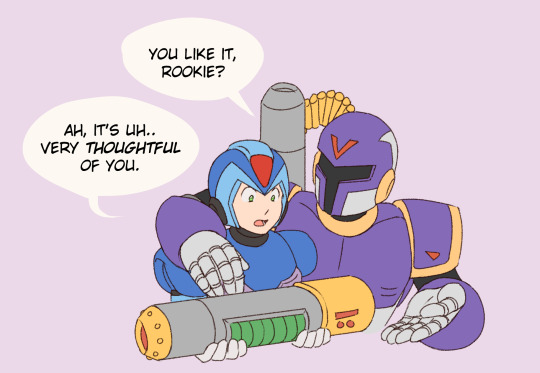
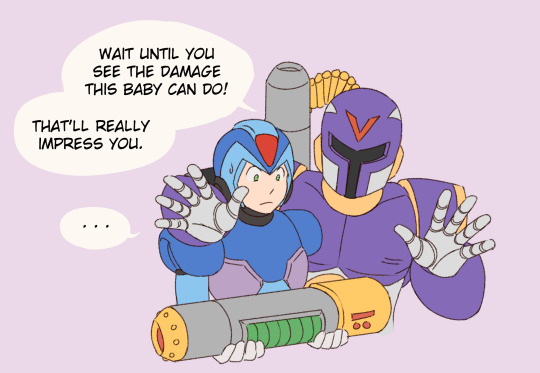
my vilex bs
#my HC: Vile is a weapons nerd#In maverick hunter X Vile has so many weapons#i like to think he gave them all their names#c'mon one of them is called Bumpity Boom#another HC: he illegally mods his weapons to be more destructive#if there's a safety feature he gets rid of it#a cannon is the perfect gift for your token bf#your token bf who's a keeper of peace#they're gonna go on an explosive date#vilex#megaman x#mmx#vile#VAVA#my art
233 notes
·
View notes
Text

amanda young’s idea of romance
#kidnapping lynn denlon bc she was too nervous to ask her out..#and giving her weapons as gifts bc those r the only gifts john ever gave her#🤷♀️#amanda young#saw#shotgunshipping#lynnmanda#lynn denlon#sawposting
152 notes
·
View notes
Text
In RWBY weapons are a part of a person, an extension of yourself, as Ruby puts it in V1. So, a weapon can say a lot about a person in how it appears and what it's used for.
Looking at Crescent Rose compared to our other main characters' weapons and it's immediately one that stands out from the size alone, it immediately draws our attention, it usually takes up the screen.
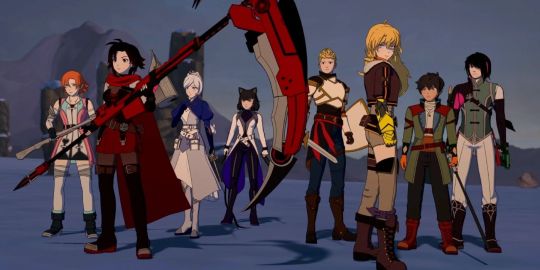
Like Ruby, it's striking, awe inspiring and larger than life. It's beautiful, resilient and strong, but evolves to be more adaptable during the Atlas Arc, when Ruby herself has to be more flexible and think outside the box, and her worldview is consistently challenged. It's also very easily the most intricate and complicated design, by her own admission:
"I guess I did go a little overboard in designing it..."
Which, while on the surface means it looks cool and flashy, it's also incredibly complex, just like Ruby.
And as we know from V9, a weapon like that would also be a heavy one to carry at all times too, and it weighs on her. Just like being "Ruby Rose" means to shoulder all the responsibilities and entanglements that come with being who she is, a huntress, a leader, a hero, a spark of hope and light who inspires others. In the end her resolve as a huntress and in who she is, and her purpose, is renewed and stronger than ever before, and wields her weapon once more with confidence.
That doesn't mean her burdens have gotten any lighter though, in fact upon returning to Vacuo, because of her message, all of humanity is now looking to her. No matter how strong, confident and resolved she is, that's a heavy weight for one person to carry alone.
Which brings me to Oscar's weapon, the Long Memory. Which is a cane, smaller, simple and straightforward, but has it's own hidden light stored inside. A cane is meant to take someone's weight by design, that's it's purpose. To be something that's leant on as a crutch when you're hurting to alleviate the pain by taking the pressure off yourself, so moving forward is made easier. Because everyone needs that support sometimes and it's okay to be weak, it doesn't make you lesser, it just makes you human. And it is incredibly human for us to care for and lean on one another for support. That vulnerability leads to our greatest strength as humans.

The one who carries the heaviest weapon vs The one who has a weapon that can be leant on to take pressure off yourself. Ruby who carries a heavy burden and Oscar being someone that can be leant on for support. ooooooohhhh the cymbal ism of it all.
#and if they swapped weapons at some point?#oscar carrying ruby's burdens in being leader and ruby letting herself be supported??#one becoming more active and the other more introspective???#ooooohhhhh. it'd be all over for you bitches.#another fun thing they could is if Crescent Rose breaks from Ruby pushing too hard#and her team help her piece back her weapon together for her#as a reference to Gift of the Moon and trying to help Ruby the way she has for them#that'd be so sweet#anyway I love the weapon symbolism in rwby hehehehe#also I love rosegarden#I feel like there's more weapon symbolism I could dig into with the Long Memory for Oscar but honestly#I mainly wanted an excuse to gush about Crescent Rose a bit#rwby#ruby rose#oscar pine#rosegarden#greenlight volume 10#rwby meta
156 notes
·
View notes
Text
given that Draxum had an entire gigantic room full of weapons in canon, i lowkey feel like he would at least own a sword cane
#bambi's rambling#rottmnt#rottmnt baron draxum#of course using it is a different story because they're pretty impractical but like#when do we ever see this man fight with weapons#almost never. and yet his house has an entire room of them#(i know his house kinda blew up in canon but shhhhh i'm ignoring that lol)#i think its safe to guess that he just collects them#or maybe he gets a lot of weapons as gifts for some reason idk#but yeah even if he never uses it i feel like he would have a sword cane lying around somewhere
139 notes
·
View notes
Text
italian cold steel cinqedea?
babygirl is that you?
- nathan + karina
#julias other favourite character of the season#return of the italian cold steel cinquedea#italian cold steel cinquedea#i just want to document every mention of her#i almost bought mysekf one for my birthday this year because i needed a new knife for cooking#and the comedy of using a short sword to chop vegetables was too good#that or a beautiful axe#anyway i didnt because my flat wont let me have weapons u_u#drawfee#drawfee quotes#drawfee video#karina farek#karina drawfee#nathan yaffe#nathan drawfee#drawing each other gifts for the holiday season!
144 notes
·
View notes
Text
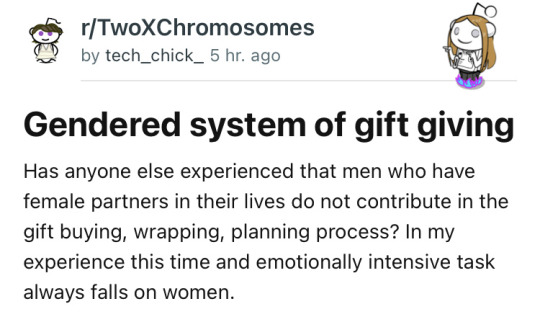
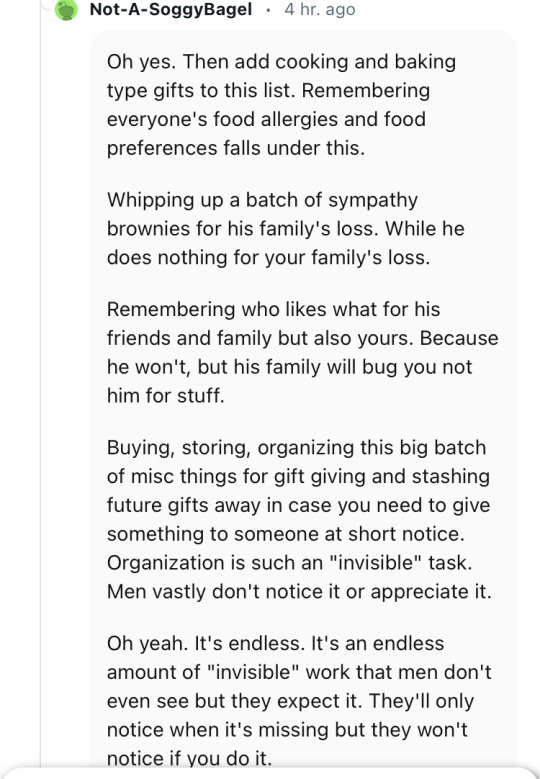
#heterorealism#heteropessimism#weaponized incompetence#gender role reversal#feminism#dating memes#gender#mental load#womens strike#misandry#men aint shit#gift giving#gender inequality
480 notes
·
View notes
Text
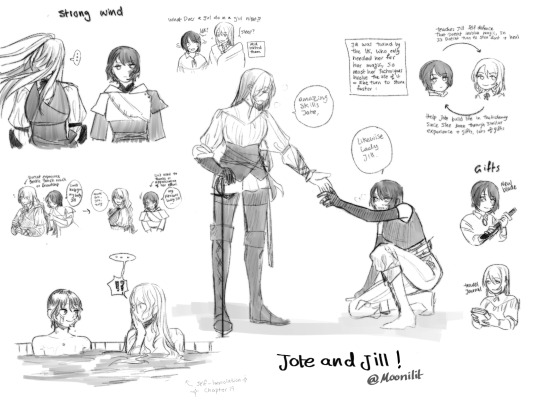
Thinking about these two beautiful strong ladies becoming best friends 💙🤎
*psst* chapter 19
#Do you think about How both of them barely got normal lives? Or how they probably never had female friends?#Because i do#thinking about them training and exchanging fighting techniques gives me life#Thinking about when clive comes bake Jote would gift jill a journal book like the one she have#So jill get to record their world travel#Let them be friends let them be best friends#Women loving women women supporting women !#liah making me realize jill never really knew how to make friends brock my heart in half and now i have HC!!#ME HOLDING THEN BOTH: YOU DID NOTHING WRONG U DESERVE TO BE HAPPY!!#jill warrick#jote#ffxvi#final fantasy xvi#Also on the gift thing jill will send gifts to jote like jewelry or cool weapons
215 notes
·
View notes
Text

There’s something unique about the pain of someone you love following in a trail you blazed through suffering, turning themself into a mirror of just how self-destructive you once were. There’s a wretched irony in how they teach you firsthand the pain your friends and family felt as you burned yourself up.
Now you know what it’s like to watch a lamb immolate itself. You can only watch as it dismisses your concerns with lies of how well it is— how completely, utterly, and perfectly fine everything is. You can only watch. You can only remember that you were a lamb just years before, and you taught this one exactly how to martyr itself by your example.
Anyhoo, hey elder siblings, how’s your day going?
#self-destruction isn’t tidy and contained#it is a mantle that is passed down#it is a sickness that radiates#it is a weapon inherited#it is a doorway that never closes once someone has passed through ahead of you#self-destruction isn’t contained no matter how you may hide it#it leaves fallout in its wake#and as much as you may hope that it wouldn’t#the ones closest to you will suffer the radiation the most of anyone#okay im done being philosophical now. so anyways#*bass boosted Big Brother I’m Just Like You plays sadly in the distance*#stuff by sofie#the present is a gift au#pmd2#pmd eos#pmd explorers#pmd sky#pmd#pokémon mystery dungeon#pmd grovyle#pmd hero#okay im done being philosophical
164 notes
·
View notes
Text
obligatory childe post ft 4.2 archon quest spoilers and also my incomprehensible ramblings (read at your own discretion)
fontaine left me with a Lot of thoughts about childe even if his screen time was kinda pitiful
it's been opening up a lot of implications for childe's potentional importance to the greater, overall plot of the story though and its driving me up a WALL but more importantly it's made me pick apart his character
which brings me to Fontaine actually being PERFECT for him to have featured in, actually. because the whole damn nation is a theater, a stage for its archon. Hydro has never fit him better because the parallels of focalors/furina to ajax/tartaglia aren't exact but it's pretty damn close. a separation of the "other" (divine in case of focalors, whatever is wrong w childe in his case) and human.
I just think a lot about how Tartaglia is only ever Ajax with family. you really don't see his old name anywhere, he's pretty openly adopted Tartaglia (kinda childe too) as his name literally in every other circumstance. which you can chalk up to just like. well, he's usually on fatui business, of course he'd use his fatui name, but. even with traveler, it's childe.
so. you know. makes me wonder if as far as he's concerned, Ajax is dead. "Ajax" died when he fell down that crack in the ground and something else crawled back out.
which makes me wonder how he'd feel about the Creator calling him Ajax.
conflicted, probably. because you know him well enough to know his old name..but he's not Ajax anymore, is he? he's not the child with a sword in hand trying to play adventurer, he's a Harbinger. he's Childe, he's Tartaglia.
conflicted because he has doubts, even if he'd never voice them, that maybe you like "Ajax" more then Childe.
#sagau#genshin sagau#self aware genshin#genshin impact sagau#self aware genshin impact#genshin cult au#genshin impact cult au#my thoughts on childe are jumbled but I think he is similar to furina/focalors in that he has many faces#he is ajax with his family– the confident sweet older brother who gets them nice gifts and doesnt visit often#but when he does he tries his best to be the older brother they need. ajax is dead and buried in the abyss and he crawled back out#but he tries.#he is also childe. tartaglia. a weapon finely honed by the Tsaritsa that goes where she leads him.#he is a murderer. plain and simple. he is no saint but a sinner just like the rest of the harbingers.#because that is simply who he has become. “Ajax” entered the abyss and Tartaglia came back out. even if it wasnt his name yet#squeezing him i wanna know what Happened Down There#they describe him as hesitant and frightened in one of his stories yet he returns and suddenly hes completely different#3 months in the abyss will do that i suppose#but im just obsessed w his themes of lsot identity (even if its just in my head) and a man being turned into a weapob#WEAPOn#also perfect opportunity for angst and conflict!!#being torn between his loyalty to the Tsaritsa vs reader would be soooo chef's kiss#honestly i think sagau/cult au with characters who arent 100% on board w the creator r so good i eat that shit up#esp if creator is tied to celestia....like ough the angst potential w so many characters like NEUVI UGH#this is getting off track but conflict also w the ajax vs childe situation..#i dont havr the words to sufficiently describe it but ough.............#just thinking abt childe being called ajax by the creator..a name hes mostly abandoned......#like if we go w my crackhead idea of him considering “ajax” dead i know he'd be so distraught but just bottle that shit up and smile#because if you wsnt ajax then he can be ajax!!!!! (please dont leave him hes senstive and has abandonment issues and separation anxiety)#desperate little puppy man (he is covered in blood and viscera bc he just killed a man and brought him to you expecting praise)#like a cat bringing you dead birds and mice.
113 notes
·
View notes
Text
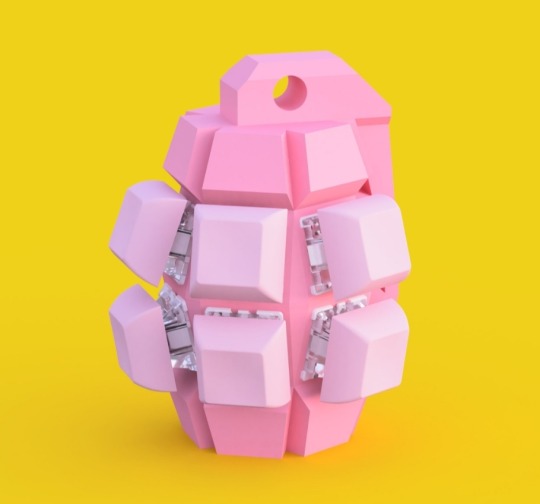
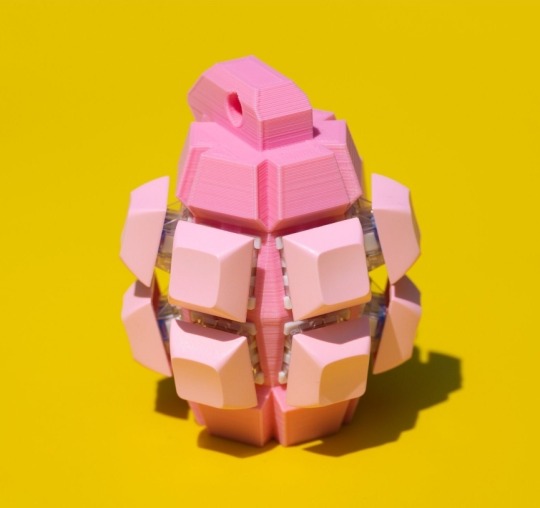


Etsy shop
#which item poll#stim toys#stimming#autism#adhd#anxiety#fidget toy#fidget toys#keyboards#aesthetic#tw weapon#unique#unique gifts#polls#poll game#random polls#etsy
66 notes
·
View notes
Text
So anyway I randomly made myself sad again thinking about an immortal dragon god who knows they’re going to outlive their mortal friends, and makes peace with it, but likewise makes peace with the idea that, when the time comes and the land needs rejuvenating, they’ll die and eventually a new dragon god will be born in their place.
Only then their best friend says “No. You’re not dying,” and agrees to be used as a component for a spell that will bind them to the land instead and, essentially, die. (Sure, there’s a chance someone in the future will figure out how to provide runes without this, and there’s a chance that the spell can be reversed and they’ll be awakened. Sure. This spell almost certainly was not tested, especially since it’s implied that part of what makes it work IS the Guardian’s friendship with Venti so you couldn’t just run a test case and then un-monster them to prove awakening is possible.)
This happens four times. Centuries apart. Time enough to grieve, and distance yourself from mortals, and be lured into the idea again because people are just so interesting, until inevitably your best friend disappears again, probably forever, and you know it was your fault.
Eight hundred years is such a long time, and that’s the LOWER estimate for Leon.
It’s really no wonder that dragon’s depressed.
#rune factory#rune factory 4#rf4#ventuswill#food mention#in the tags#anyway also ever think about how Dolce makes accessories for people she loves?#ever think about how even well-cared-for fabric’s unlikely to last 600 years?#ever think about how Venti’s neutral on literally all accessories and weapons?#she doesn’t dislike them. but she only likes food. food is generally not meant to outlive the chef or the farmer.#food will not make you sad when the person who made it is gone#whether because the reminder’s too painful or because you’ve outlived every trace of your best friend’s existence#Guardian Angst: The gift that keeps on giving!
79 notes
·
View notes
Text
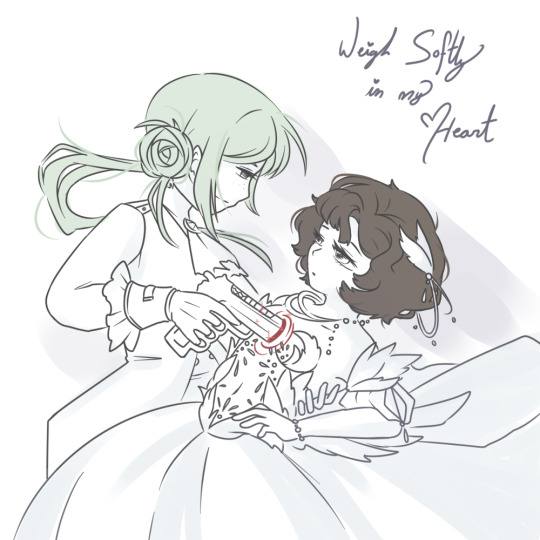
I am cooking something violent.
#reverse 1999#verneider#vertin x schneider#the deep lesbian urge to pull out a weapon deep within your lover's tit#you know what i'm talking about#by the time i'm done with the fic it'll be around 20k long i dunno#it was suppose to be a christmas gift to verneider nation but i underestimated the celebrations this year
85 notes
·
View notes
Text
Underground Empire: Henry Farrell and Abraham Newman's must-read account of "How America Weaponized the World Economy."

I'm coming to Minneapolis! Oct 15: Presenting The Internet Con at Moon Palace Books. Oct 16: Keynoting the 26th ACM Conference On Computer-Supported Cooperative Work and Social Computing.

At the end of Henry Farrell and Abraham Newman's new book Underground Empire, they cite the work of John Lewis Gaddis, "preeminent historian of the Cold War," who dubbed that perilous period "The Long Peace":
https://us.macmillan.com/books/9781250840554/undergroundempire
Despite several harrowing near-misses, neither of the two hair-trigger, nuclear-tipped arsenals were ever loosed. When the Cold War ended, the world breathed a sigh of relief and set about refashioning itself, braiding together economic and social interdependencies that were supposed to make future war unthinkable. Nations that depend on one another couldn't afford to go to war, because they couldn't hurt the other without hurting themselves.
The standard account of the Cold War's "Long Peace" is that the game theorists who invented Mutually Assured Destruction set up a game where "the only way to win was not to play" (to quote the Matthew Broderick documentary War Games). The interdependency strategy of the post-Cold War, neoliberal, "flat" world was built on the same fundamentals: make war more costly than peace, victory worse than the status quo, and war would be over – if we wanted it.
But Gaddis has a different idea. Any effect Mutually Assured Destruction had on keeping fingers from pushing the buttons was downstream of a much more important factor: independence. For the most part, the US and the USSR had nonintersecting spheres of influence. Each of these spheres was self-sufficient. That meant that they didn't compete with one another for the use of the same resource or territory, and neither could put the other in check by seizing some asset they both relied on. The exceptions to this – proxy wars in Latin America and Southeast Asia – were the disastrous exceptions that proved the rule.
But the past forty years rejected this theory. From Thomas Friedman's "World Is Flat" to Fukyama's "End of History," the modern road to peace is paved with networks whose nodes can be found in every country. These networks – shipping routes, money-clearing systems, supply chains, the internet itself – weave together nearly every nation on Earth into a single web of interdependencies that make war impossible.
War, you may have noticed, has become very, very possible. Even countries with their own McDonald's franchises are willing to take up arms against one another.
That's where Farrell and Newman's book comes in. The two political scientists tell the story of how these global networks were built through accidents of history, mostly by American corporations and/or the American state. The web was built by accident, but the spider at its center was always the USA.
At various junctures since the Cold War, American presidents, spies and military leaders have noticed this web and tugged at it. A tariff here, a sanction there, then an embargo. The NSA turns the internet into a surveillance grid and a weapon of war. The SWIFT system is turned into a way to project American political goals around the world – first by blocking transactions for things the US government disfavors, then to cut off access for people who do business with people who do things that the US wants stopped.
Networks tend to centralization, to hubs. These central points are efficient, but (as we learned during the covid lockdown) brittle. One factory fails and an entire category of goods can no longer be made – anywhere. When it comes to global resiliency, these bottlenecks are are a bug; but when it comes to US foreign policy, these chokepoints are a feature.
Farrell and Newman skillfully weave a tale of individuals, powers, circumstances and forces, showing how the rise and rise of world-is-flat rah-rah globalism created a series of irresistable opportunities for "weaponized interdependence." Some players of the game wield these weapons like a scalpel; others (like Trump) use them like a club.
This is a chronicle of the dawning realization – among US power-players and their foreign adversaries, particularly in China – that the US lured its trading partners into entrusting it with financial clearing, IP enforcement, fiber landings, and other chokepoints, on the grounds that American wouldn't risk the wealth these systems generated by turning them into engines of coercion.
But then, of course, that's exactly what America did, from the War on Terror to economic sanctions on Iran, from seizing Argentinian reserves to freezing Russia's cash. Sometimes, the US did this for reasons that I sympathize with, other times, for reasons I am aghast at. But they did it, and did it, and did it.
America's adversaries (and frenemies, like the EU) have tried to build alternative "underground empires" to offset the risk of having their interdependencies weaponized (or to escape from an ongoing situation). But therein lies a conundrum: world-is-flat-ism has ended the age of indepedence. Countries really do need each other – for energy, materials, and finished goods. Independence is a long way off.
To create new interdependency networks, it's not enough for countries to agree that they don't trust America as neutral maintainer of their strategic chokepoints. They also have to agree to trust one of their own to operate those chokepoints. Lots of countries have come to mistrust US dollar-clearing and the SWIFT system – but few are willing to allow, say, China to run an alternative system that carries out settlements in Renminbi. The EU might be able to suck in some "friendly" countries for a Euro-clearing system, but would China trust them? How about Iran?
Farrell and Newman make a good case that US's position at the center of the web is a historical accident, and possibly a one-off, contingent on the ascendant post-Cold War ideology that said that markets and the interdependencies they create would neutralize the threat of handing a rival nation that much power.
Which leaves us in a world of interdependency in conflict. If Gaddis is right and the Long Peace was the result of independence, then this bodes very ill. The only thing worse than a world where no one can depend on anyone is a world where we must depend on entities that are hostile to us, and vice-versa. That way lies a widening gyre of conflict that felt eerily palpable as world events unfolded while I read this excellent, incisive book.
Political science, done right, has the power to reframe your whole understanding of events around you. Farrell and Newman set out a compelling thesis, defend it well, and tell a fascinating tale. And when they finish, they leave you with a way to make sense of things that seem senseless and terrible. This may not make those things less terrible, but at least they're comprehensible.

If you'd like an essay-formatted version of this post to read or share, here's a link to it on pluralistic.net, my surveillance-free, ad-free, tracker-free blog:
https://pluralistic.net/2023/10/10/weaponized-interdependence/#the-other-swifties


My next novel is The Lost Cause, a hopeful novel of the climate emergency. Amazon won't sell the audiobook, so I made my own and I'm pre-selling it on Kickstarter!
#pluralistic#henry farrell#undergound empire#chokepoints#swift#weaponized interdependency#books#reviews#gift guide#political science#new cold war#surveillance#ip#soft power#abraham newman
142 notes
·
View notes
Text
Well I messed up the last poll so let's try again
Rules are the same as the last poll: BDW has Hyrja and Stardust has Kavir and Dandy, they're all at the same level, and they can use all their weapons and magical items
#whether or not the rhapsody counts as a magic item/weapon is up to you#as well as if you think the eom party can use their dark gifts#legends of avantris#once upon a witchlight#icebound#edge of midnight#beneath dark wings#stardust rhapsody#shroud over saltmarsh
49 notes
·
View notes